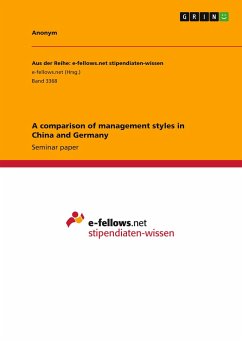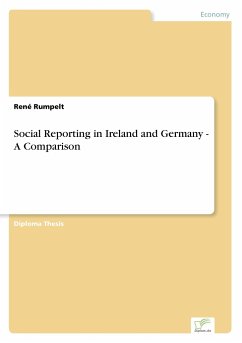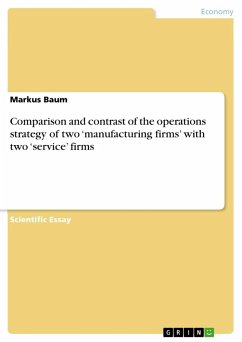Bachelor Thesis from the year 2013 in the subject Business economics - Business Management, Corporate Governance, grade: First Class, New College Durham (New College Durham/ Leeds Metropolitan University), language: English, abstract: The purpose of this project was to analyse to what extent gender equality has beenachieved, which barriers still exist in female employment and to evaluate opportunitiesfor women in the UK in comparison to those in Germany. The author reviewed a widearray of sources, such as studies, laws and articles, but the main analysis was done onthe basis of extensive data that has been collected by the OECD and the WorldEconomic Forum. Based on those findings, gender gaps concerning labour forceparticipation, occupational sectors and types of work as well as wages and pensionswere identified for both countries. More specifically this paper provides information onthe main barriers for women in employment, the most important of which are maledominatedcorporate cultures and discrimination. Especially mothers experiencebarriers, like the lack of affordable childcare, insufficient flexible working options, or thefact that people who use those are disadvantaged as well as unequal contribution ofunpaid work and childcare, despite laws that allow fathers to participate more in familylife. During the whole project, the applicability of theories such as the 'Glass Ceiling',the 'Sticky Floor' or the 'Opt-Out Revolution' has been tested in order to identifyreasons for inequality. Furthermore, measures which have already been taken againstthe existing barriers were described, and some that could be taken in the future weresuggested. Differences between conditions for women in Germany and the UK havebeen analysed, compared and evaluated, with the result that the UK offers slightlybetter chances, but both countries achieve quite different results in particularcategories. Depending on which aspects a woman puts emphasis on, this thesis canhelp to decide which country is best to live and raise a family in.








